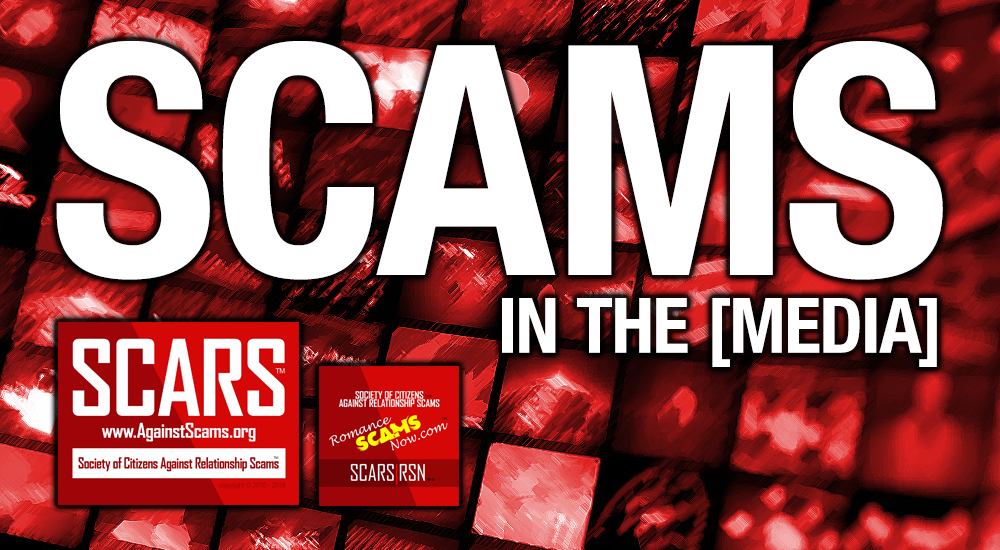SCARS™ Insight: Romance Scams Led All Consumer Fraud In 2018
Overall Romance Scams Are Still Below The Record Year Of 2016, But Reporting Is Up Making It Look Higher
According to CNN:
Scams that prey on people’s loneliness and emotional vulnerability cost Americans more money than any other fraud reported to the Federal Trade Commission in 2018.
More than 21,000 people were tricked into sending money to their supposed sweetheart last year — to the tune of $143 million, the FTC said in a report this week. The number has been steadily climbing the last couple of years.
For instance, the 2018 losses are almost quadruple that of 2015 figures.
The victims who were swindled most often? Those between the ages of 40 and 69.
Of Course, We Know That Is Wrong
Scams prey on all age groups, with Millennials now being the fastest-growing demographic according to SCARS|ANALYTICS. Teenage victims are also exploding thanks to Sextortion variations of Romance Scams.
How these scams work
Romance scammers often create attractive, fake profiles on social media and dating platforms to cultivate online relationships and persuade targets to send money in the name of love. They’ll often claim they need money for some sort of emergency or to cover travel expenses.
Kathy Stokes is the director of fraud prevention programs for AARP, a nonprofit that empowers people 50 and older.
She told CNN that the phony profiles typically depict “extraordinarily good looking” people or military officers. Over the course of weeks or months, the scammers build up to asking for money.
Most of the victims said they wired money to scammers, although some also sent gift cards.
On average, targets of romance scams reported a median loss of $2,600, which is higher than any other type of consumer fraud. The median jumped to $10,000 for people over age 70, the FTC said.
One of the most egregious cases Stokes heard of was a woman who met a man online and ended up wiring him $50,000 on eight separate occasions. They never met in person, but he told her he needed funding to ensure a business deal succeeded.
How to avoid falling prey:
As online dating becomes more popular, the FTC warns people to become suspicious of any online relationship if:
- the person wants to leave the dating site immediately and use personal email or messaging
- the person is fast to claim love
- they say they’re traveling or working internationally
- he or she says they want to visit but don’t have the money because, for example, a business deal went sour
- they ask for money without meeting face-to-face
So, says the FTC, take things slowly and ask a lot of questions. Are their answers inconsistent? That’s a red flag.
One can also try a reverse-image search.
“If they’re associated with another name or with details that don’t match up,” the FTC says, “it’s a scam.”
PLEASE SHARE OUR ARTICLES WITH YOUR CONTACTS
HELP OTHERS STAY SAFE ONLINE
SCARS™ Team
A SCARS Division
Miami Florida U.S.A.
TAGS: SCARS, Important Article, Information About Scams, Anti-Scam, According to CNN, Media Is Always Wrong, Romance Scams, Largest Consumer Fraud, Insight
The Latest SCARS|RSN Posts
FIND MORE SCAM NEWS
«SCAMCRIME.COM»
CHAT WITH SCARS™
«CLICK HERE»
END
MORE INFORMATION
– – –
Tell us about your experiences with Romance Scammers in our
« Scams Discussion Forum on Facebook »
– – –
FAQ: How Do You Properly Report Scammers?
It is essential that law enforcement knows about scams & scammers, even though there is nothing (in most cases) that they can do.
Always report scams involving money lost or where you received money to:
- Local Police – ask them to take an “informational” police report – say you need it for your insurance
- U.S. State Police (if you live in the U.S.) – they will take the matter more seriously and provide you with more help than local police
- Your National Police or FBI « www.IC3.gov »
- The SCARS|CDN™ Cybercriminal Data Network – Worldwide Reporting Network « HERE » or on « www.Anyscam.com »
This helps your government understand the problem, and allows law enforcement to add scammers on watch lists worldwide.
– – –
Visit our NEW Main SCARS Facebook page for much more information about scams and online crime: « www.facebook.com/SCARS.News.And.Information »
To learn more about SCARS visit « www.AgainstScams.org »
Please be sure to report all scammers
« HERE » or on « www.Anyscam.com »
Legal Notices:
All original content is Copyright © 1991 – 2020 SCARS All Rights Reserved Worldwide & Webwide. Third-party copyrights acknowledge.
SCARS, RSN, Romance Scams Now, SCARS|WORLDWIDE, SCARS|GLOBAL, SCARS, Society of Citizens Against Relationship Scams, Society of Citizens Against Romance Scams, SCARS|ANYSCAM, Project Anyscam, Anyscam, SCARS|GOFCH, GOFCH, SCARS|CHINA, SCARS|CDN, SCARS|UK, SCARS Cybercriminal Data Network, Cobalt Alert, Scam Victims Support Group, are all trademarks of Society of Citizens Against Relationship Scams Incorporated.
Contact the law firm for the Society of Citizens Against Relationship Scams Incorporated by email at legal@AgainstScams.org












Leave A Comment